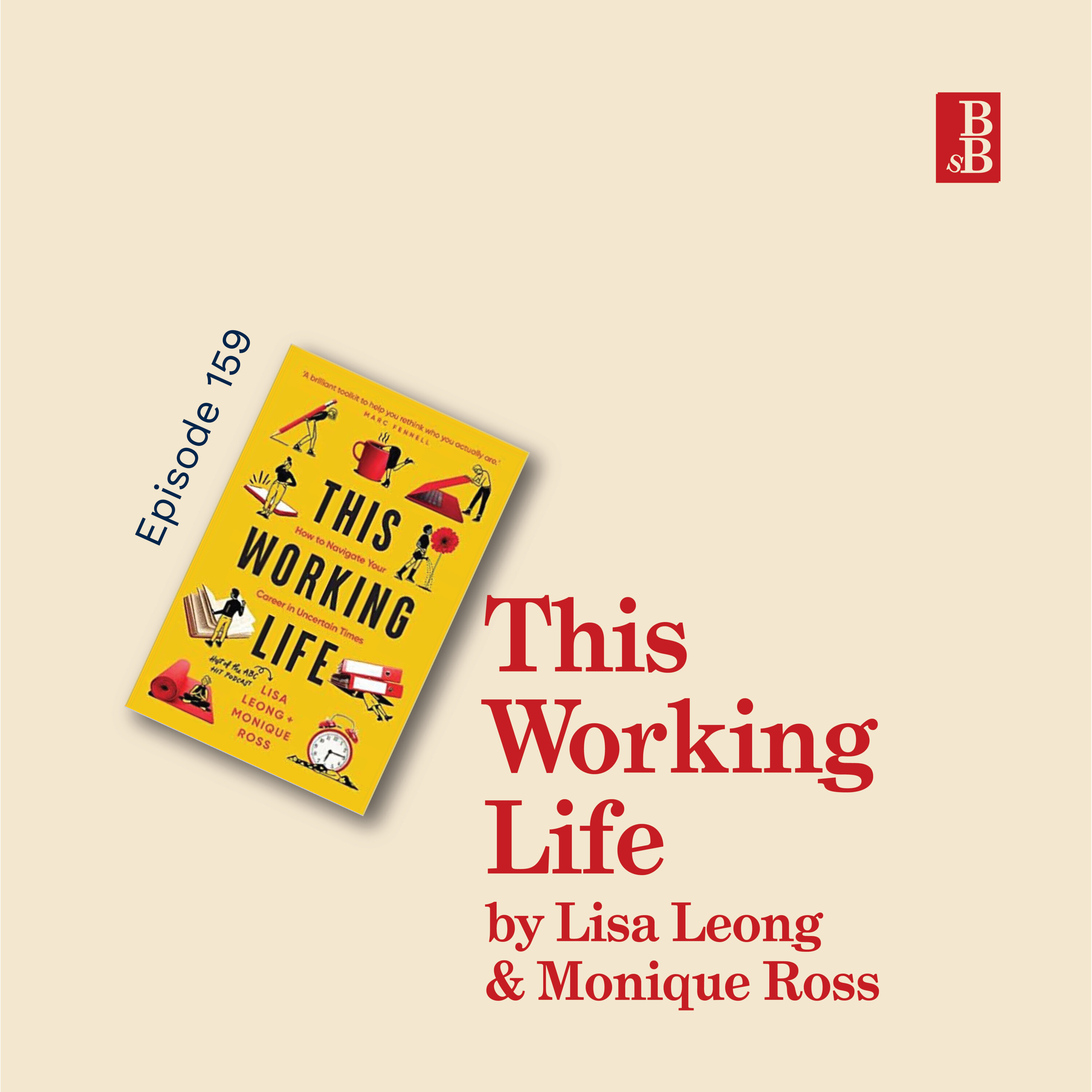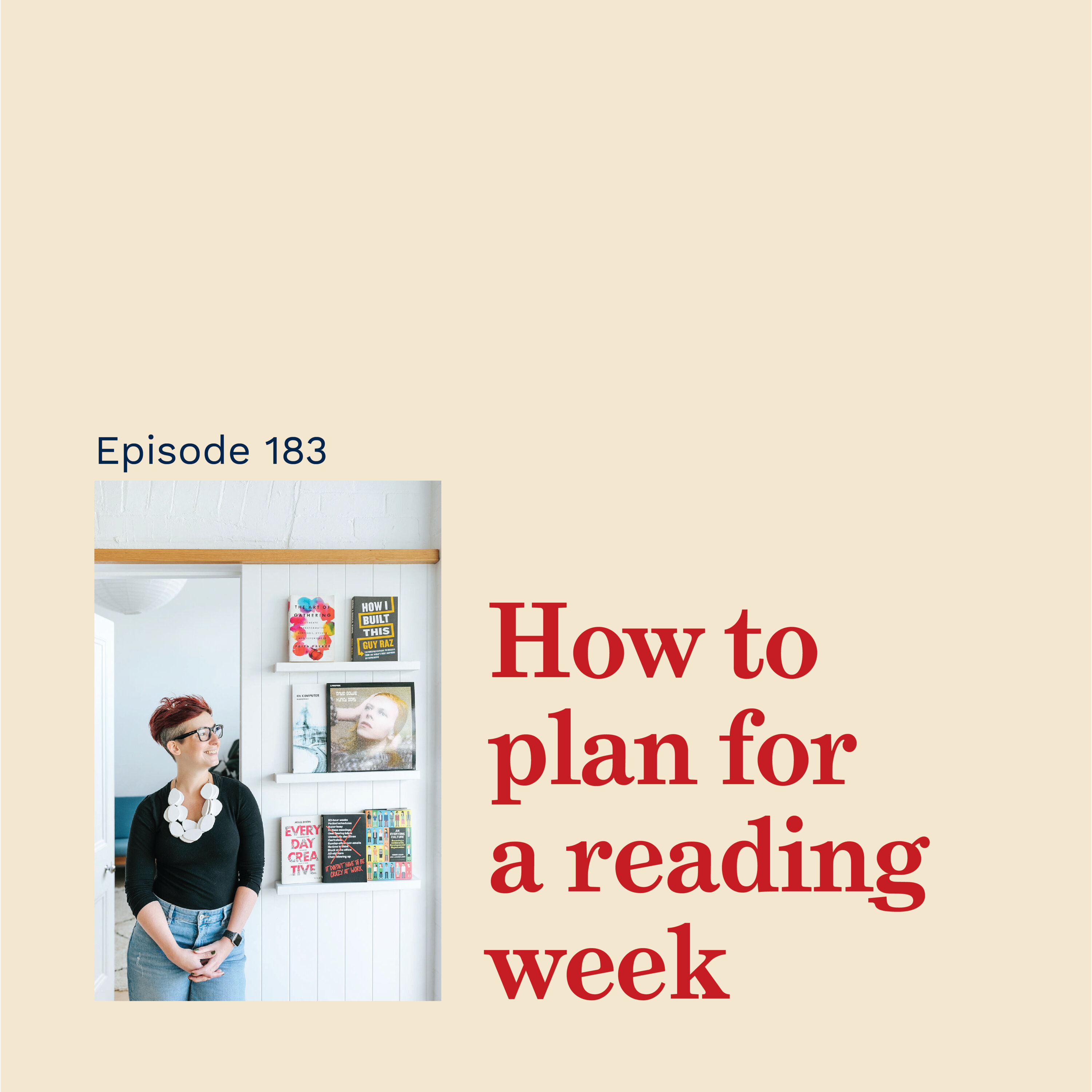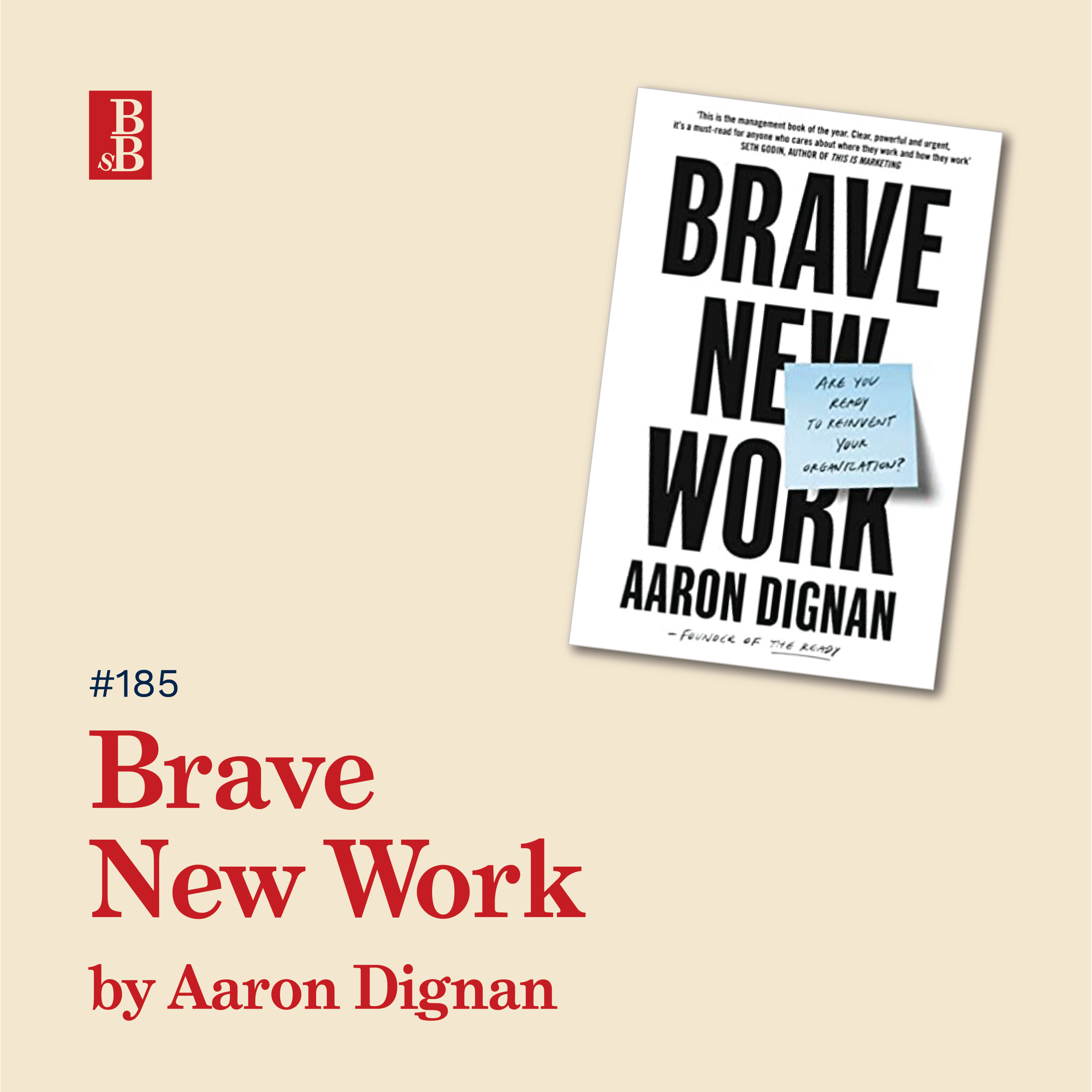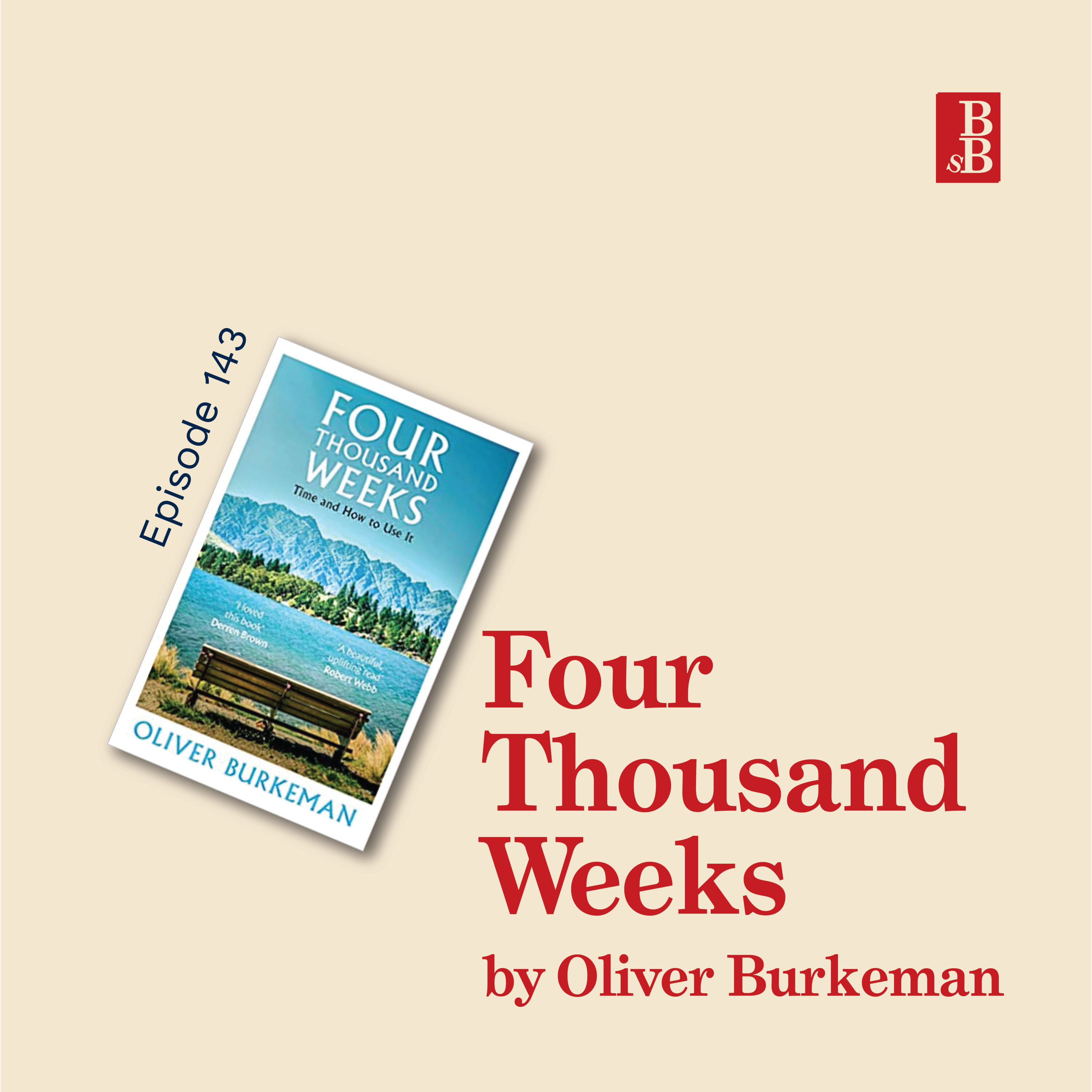Think Like a Rocket Scientist by Ozan Varol: how to solve more complicated problems
Consider supporting the podcast with your next book purchase. Save the Steph’s Business Bookshelf affiliate stores for Book Depository (Global) or Bookshop.org (US) in your browser.
[00:00:00] Welcome back to Steph's Business Bookshelf. And this week's episode; the book Think Like a Rocket Scientist by Ozan Varol.
Keep listening to find out why you need to fail more successfully.
Welcome back. I'm your host, Steph Clarke. And as usual, every week. I'll be sharing with you the three big ideas from the best nonfiction books that I've been reading and doing the reading so you don't have to. This week is the book think like a rocket scientist, and I'm going to be sharing with you the three big ideas from this book.
It's pretty cold, rainy weekend here in Naarm/Melbourne. So it's a good weekend to be curled up with the book and recording some podcasts and of course drinking some tea.
If you're doing something similar this weekend, and maybe even looking at buying some new books, I'd love for you to head over to one of my affiliate stores with Bookshop or Book Depository, depending on which country you're in, to stock up on some new books.
It's a great way of [00:01:00] filling up your bookshelves and supporting the podcast at the same time, the links are in the show notes, so you can bookmark those ready for when you are next, stocking up your bookshelf.
All right. Let's get into this week's book. Think like a rocket scientist, a little bit about the book. If you haven't heard of it.
In this book, a former rocket scientist reveals the habits, ideas, and strategies that will empower you to turn the seemingly impossible into the possible.
But fortunately you don't have to be a rocket scientist in order to think like one. In this accessible and practical book, Ozan Varol reveals, nine simple strategies from rocket science that you can use to make your own giant leaps in work and life. Whether it's landing your dream job, accelerating your business, learning a new skill or creating the next breakthrough product.
Today thinking like a rocket scientist is a necessity. We all encounter complex and unfamiliar problems in our lives. And those who can tackle these problems without clear guidelines and with the clock ticking, enjoy an extraordinary advantage.
Think like a rocket scientist will inspire you to take your [00:02:00] own moonshot and enable you to achieve liftoff. Yes, there we go. There was plenty of rocket related puns in that. A little about wasn't that. And that's taken from Ozan's website; ozanvarol.com. There is a link to that in the show notes. One of the things I found particularly helpful on his website is there are some resources that help to summarize the book and the various chapters. So head over there, if you'd like more information.
Now a little bit about the author. Ozan Varol is a rocket scientist, turned award-winning professor and author. A native of Istanbul, Turkey Ozan grew up in a family of no English speakers, he learned English as a second language and moved to the United States by himself at 17 to attend Cornell university and major in astrophysics. Whilst he was there, he served on the operations team for the 2003 Mars exploration rovers project that sent two rovers, spirit and opportunity, to Mars.
He built stuff that then went on to the red planet and wrote code that snaps photos of the Martian surface. He then [00:03:00] pivoted and went to law school. He graduated first in his class, earning the highest grade point average in his law school's history. He's been called a true original by Adam Grant and dubbed a superhero by Daniel Pink.
His work has been described as must read by Susan Cain and featured in the Wall Street Journal Time, BBC, CNN, Washington Post, and more.
And again that was taken from ozanvarol.com. Link is in the show notes.
Alright, let's get into it. The three big ideas I took from the book, think like a rocket scientist by Ozan Varol. Big idea number one is embrace uncertainty. It probably goes without saying, but there is little point trying to do or create something new if you can't take a little bit of uncertainty.
He says in the book that "where certainty ends progress begins". I think that's a great quote. Writing down some of your fears, your uncertainties and the negative outcomes you might think could happen. Doing a bit of a pre-mortem can really help take the edge off of these uncertainties or the things you're worried about. And it also helps you prioritize them. And he talks about [00:04:00] going through this process in various projects that he has worked on.
It also allows you to build in the margins of safety and the redundancies to mitigate some of the risks. And even sometimes to realize that maybe some of them aren't so bad because the results of those things going wrong might not be the end of the world. This extends also into the practice of 'test as you fly and fly as you test', because sometimes it's only through doing, testing and breaking stuff that the uncertainty starts to clear, at least for the next step to take.
He also suggests that you start with multiple hypothesis. And this also helps because it creates multiple potential outcomes and options that you can play with. And in some ways, whilst it creates more options, it can, in some ways also reduce uncertainty because you can think, Oh, okay, well, there's multiple different ways that this could happen or multiple different things and outcomes that could happen. So it gives you more to play with. And in some ways less uncertainty.
That was big idea number one; embrace uncertainty.
Big idea number two is stretch your thinking [00:05:00] and your comfort.
In the book Ozan talks about various different ways that we can stretch our thinking to think more like a rocket scientist. We look for opposites. We look back in history. We test for first principles. We look for alternative uses for existing bits of equipment. We go big. We go small. We play, we find people to disagree with us. Work with new people, change your mind more often and sketch before you create.
The book shares multiple ways to think differently. And some of the activities and intentional things that we can do in order to stretch our thinking and get out of our comfort zone a little bit.
These things, and these approaches have all resulted in people finding something new by, by taking them, testing something out. And obviously that you can do that too. They all require though attention and intention. You can't just be like a rocket scientist without doing any of this stuff. All comes from this as the fundamental mindset and principles of being a rocket scientist is stretching your thinking.
And there's examples where even at places like NASA, they let stuff get in [00:06:00] the way. Things like bureaucracy or being stuck in ways of thinking and how sometimes it was only when someone new joined a team or asked a wild question or made it bigger suggestion, that problems that had existed for a while became unstuck.
One of the things I really enjoyed about the book was the Ozan can share some really different examples of, of thinking like a rocket scientist and be able to share his experience of working on the Mars Rover project and how some of these particular techniques either came to life or were missed and opportunities were missed to think differently, and therefore problems took longer to solve for example.
So I really enjoyed his first person experience of using this on a project that isn't something I was aware of. Yeah, I know that it happened, but was unaware of the behind the scenes stuff. So that was really interesting. So that's big idea. Number two, stretch your thinking and your comfort.
Finally big idea. Number three is fail successfully.
Now, Ozan actually challenges this fail [00:07:00] fast approach that we hear a lot from the tech world, particularly the Silicon Valley tech world. And he says that sometimes this can miss the point of reflection and learning that is required for failure to actually be useful. So it's no use failing fast if you're not actually learning from that failure.
He talks about focusing on the inputs of failure to be able to analyze and make future decisions from that. It's a perfect opportunity to, or perfect prompt for using your curiosity. Similarly, but, but opposite, we should also do the same with success. If it's working, do we actually know why it's working?
It's really easy to fall into the trap of success and thinking, Oh, well, everything's going well. So everything's fine, without actually knowing why that is the case.
And of course it goes to that saying that we need to fail well. We need to tell people about our failures so that they can also learn from them. And we also need to help them to feel comfortable to share their own failures too, and creating that psychological safety in a team or an organization. So that failure is an option and failure is done in a really successful way.
Now, of course, this also links back [00:08:00] to big idea number one about embracing uncertainty. And making sure that you're linking some of the pre-mortems that you're doing with the postmortems potentially of a failure and being able to link the two and see where those assumptions may have been wrong. So coming back to that first principles, thinking to think, well, what did we assume early on and what was right or wrong about that in order to then fail better or fail more successfully and make a better attempt next time.
So that's big idea. Number three, fail successfully.
So there we go, three big ideas from the book think like a rocket scientist, by Ozan Varol. Big idea number one, embrace uncertainty. Big idea number two, stretch your thinking and your comfort. And big idea number three, fail successfully.
Now I quite enjoyed the writing style of this book. It's very accessible. It It's not a particularly heavy read, which is always nice. And it is really useful. I would say that if you have read anything about innovation or more creative thinking, you'll probably find this [00:09:00] book a little basic. So I definitely would recommend it for someone who wants a bit of a one-stop shop on all of the things around creative thinking or thinking differently and innovative thinking. And , the design thinking type process, this would be a great first book for that, if you've not really read anything or learn anything about that before.
But if you're pretty familiar with some of those concepts, I'd say you probably won't learn too much new stuff in here. That said if you're particularly interested in the rocket science elements and Ozan's role in the Mars Rover projects, then yeah, from that perspective, this may be an interesting read for you, but there are probably other books that go into a little bit more depth or more nuanced or different applications of creative or innovative thinking that might be a better next step book for you if you already have some of that information and knowledge already.
So there we go, episode 115. I don't know how we've got that far. That's pretty cool. Isn't it? And the book, think like a rocket scientist. If you enjoyed this episode, I'd love to hear from you as usual. Contact details are all in the show notes. But otherwise until next time. [00:10:00] Happy reading.
Let’s connect
LinkedIn
Instagram
Support my book habit: https://www.buymeacoffee.com/stephsbookshelf
See omnystudio.com/listener for privacy information.
Hey, have you subscribed to the bookmark newsletter? If you liked this, you might like my twice-monthly email with book reviews and ideas of what you should be reading, and listening to, next. Click here to subscribe.

















